“Looking Forth for the Great Day of the Lord to Come”
Reading assignment
Doctrine and Covenants 29:9–29; 34:5–12; 45:16–75; 88:86–99; 101:22–34; 133.
Links: Teacher’s manual | Student manual
It’s a busy year for Your Humble Godless Doctrine teacher. So I’m posting this lesson as kind of a rough outline, with the intention of filling in the details later. Think of this as the notes that a Gospel Doctrine teacher would walk into class with.
Overview
A strange thing I noticed on my mission: whenever I ran across people of any denomination — Mormon, Pentacostal, whatever — and they were super into the timing of the Last Days, they just seemed dangerously nuts to me.
One guy referred to the book of Daniel. Apparently it said that the King of the North was wounded in his head, and that was meant to refer to Gorbachev’s famous birthmark. And don’t even start me on the Bible Code. I guess if you’re someone who really gets into the Last Days stuff, you kind of have to believe that God was kind of obsessed with 20th century politics.
You also have to be kind of horrible. Seems many Christians just can wait for disasters to happen, so that Jesus will come again.
So perhaps that’s the reason for this hilarious note in the Gospel Doctrine Manual:
Note to the teacher: As you teach this lesson, focus on the Lord’s revealed words in the Doctrine and Covenants. Do not discuss speculative matters such as the timing of the Second Coming.
Well, of course. Could you imagine? You might as well turn the class over to the crazies.
Reading
Let’s take a quick look at the reading.
God will burn people.
D&C 29:9 For the hour is nigh and the day soon at hand when the earth is ripe; and all the proud and they that do wickedly shall be as stubble; and I will burn them up, saith the Lord of Hosts, that wickedness shall not be upon the earth;
What kind of Stockholm Syndrome must members be in, being told to worship a being who will burn them up if they don’t obey him?
Next thing: It’s going to happen soon.
D&C 29:10 For the hour is nigh, and that which was spoken by mine apostles must be fulfilled; for as they spoke so shall it come to pass;
It’s going to be so impressive. Also it is going to suck.
D&C 29:14 But, behold, I say unto you that before this great day shall come the sun shall be darkened, and the moon shall be turned into blood, and the stars shall fall from heaven, and there shall be greater signs in heaven above and in the earth beneath;
15 And there shall be weeping and wailing among the hosts of men;
16 And there shall be a great hailstorm sent forth to destroy the crops of the earth.
17 And it shall come to pass, because of the wickedness of the world, that I will take vengeance upon the wicked, for they will not repent; for the cup of mine indignation is full; for behold, my blood shall not cleanse them if they hear me not.
18 Wherefore, I the Lord God will send forth flies upon the face of the earth, which shall take hold of the inhabitants thereof, and shall eat their flesh, and shall cause maggots to come in upon them;
19 And their tongues shall be stayed that they shall not utter against me; and their flesh shall fall from off their bones, and their eyes from their sockets;
Et cetera.
Also hell with fire is totes real, and it will last forever.
D&C 29:27 And the righteous shall be gathered on my right hand unto eternal life; and the wicked on my left hand will I be ashamed to own before the Father;
28 Wherefore I will say unto them—Depart from me, ye cursed, into everlasting fire, prepared for the devil and his angels.
29 And now, behold, I say unto you, never at any time have I declared from mine own mouth that they should return, for where I am they cannot come, for they have no power.
Has anyone told you that Mormons don’t believe in hell, or if they do, it’s just sort of like being forever alone? Well, that’s not what the Doctrine and Covenants says.
Also: Jews will totally be sorry.
D&C 45:51 And then shall the Jews look upon me and say: What are these wounds in thine hands and in thy feet?
52 Then shall they know that I am the Lord; for I will say unto them: These wounds are the wounds with which I was wounded in the house of my friends. I am he who was lifted up. I am Jesus that was crucified. I am the Son of God.
53 And then shall they weep because of their iniquities; then shall they lament because they persecuted their king.
Wait — who’s that walking towards us on a gigantic ice highway? Why, it’s the Ten Lost Tribes! Remember them from Lesson 12? Apparently they were all hanging out together in the north country all this time!
D&C 133:26 And they who are in the north countries shall come in remembrance before the Lord; and their prophets shall hear his voice, and shall no longer stay themselves; and they shall smite the rocks, and the ice shall flow down at their presence.
27 And an highway shall be cast up in the midst of the great deep.
Then there will be a thousand years of peace.
D&C 101:30 In that day an infant shall not die until he is old; and his life shall be as the age of a tree;
31 And when he dies he shall not sleep, that is to say in the earth, but shall be changed in the twinkling of an eye, and shall be caught up, and his rest shall be glorious.
The Institute director in our town loved stuff like this, and would teach about getting “twinkled” instead of dying. Anyone hear anything like this?
So why did I get the impression — even as a believer — that going too far down this particular rabbit hole was the mark of a delusional person? Because it is delusional. It is nuts. Sensible people don’t be believing this way.
How to be ready
What are members counselled to do about the Second Coming?
Before you answer, let’s remember: this is the run-up to the biggest event in earth’s history. Billions of people are going to die. Disasters and torments await the unprepared.
So what are you supposed to do about this enormous impending event?
Answer, according to the lesson manual: Eh, nothing really.
President Gordon B. Hinckley taught: “How do you prepare for the Second Coming? Well, you just do not worry about it. You just live the kind of life that if the Second Coming were to be tomorrow you would be ready. Nobody knows when it is going to happen. … Our responsibility is to prepare ourselves, to live worthy of the association of the Savior, to deport ourselves in such a way that we would not be embarrassed if He were to come among us. That is a challenge in this day and age” (Church News, 2 Jan. 1999, 2).
In other words, you’re supposed to be on tenterhooks all the time, staying ready ready ready! but then don’t worry about it. Relax!
This is a contradictory demand. Other contradictory demands in the church:
- You’re supposed to love your family, but spend all your time serving the church instead of being with them.
- You’re supposed to study and gain knowledge of earthly things, but treat it like it’s not very important.
- You’re supposed to make friends with non-members so you can proselyte them, but your social group will naturally include the people you spend the most time with: members.
So in summary: the Second Coming is a crucial event that is happening very soon, but that you have a lot of time to prepare for. It’s very frightening, but you’re not supposed to worry about it. Joseph Smith said that it was happening very very very soon, but that was a long time ago. So just think how soon it’s going to be now!
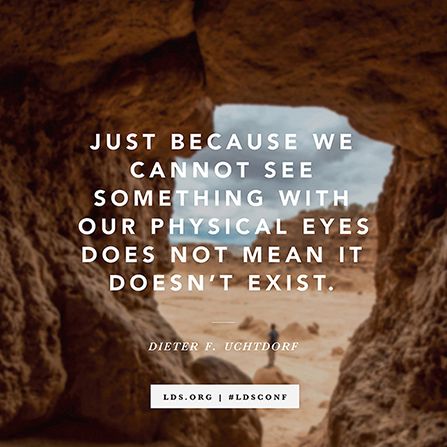
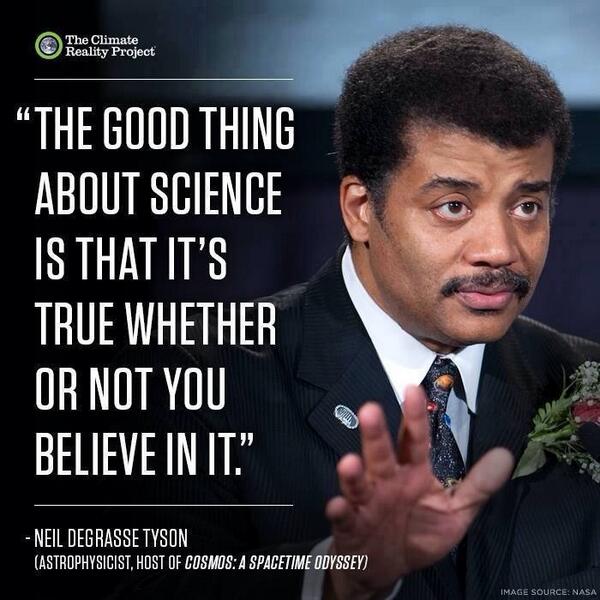
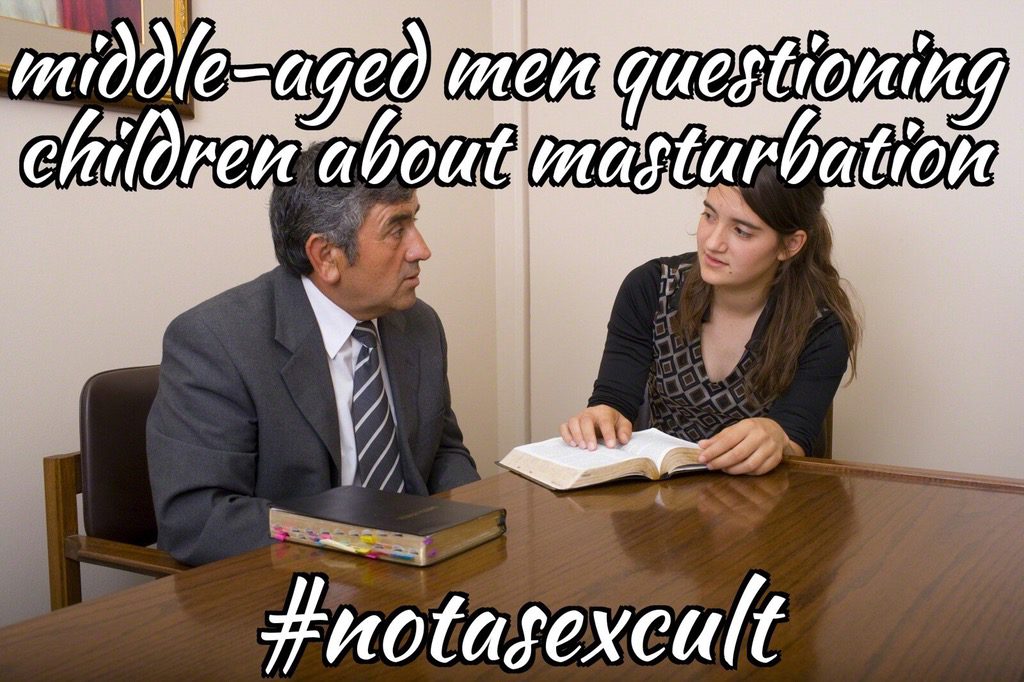
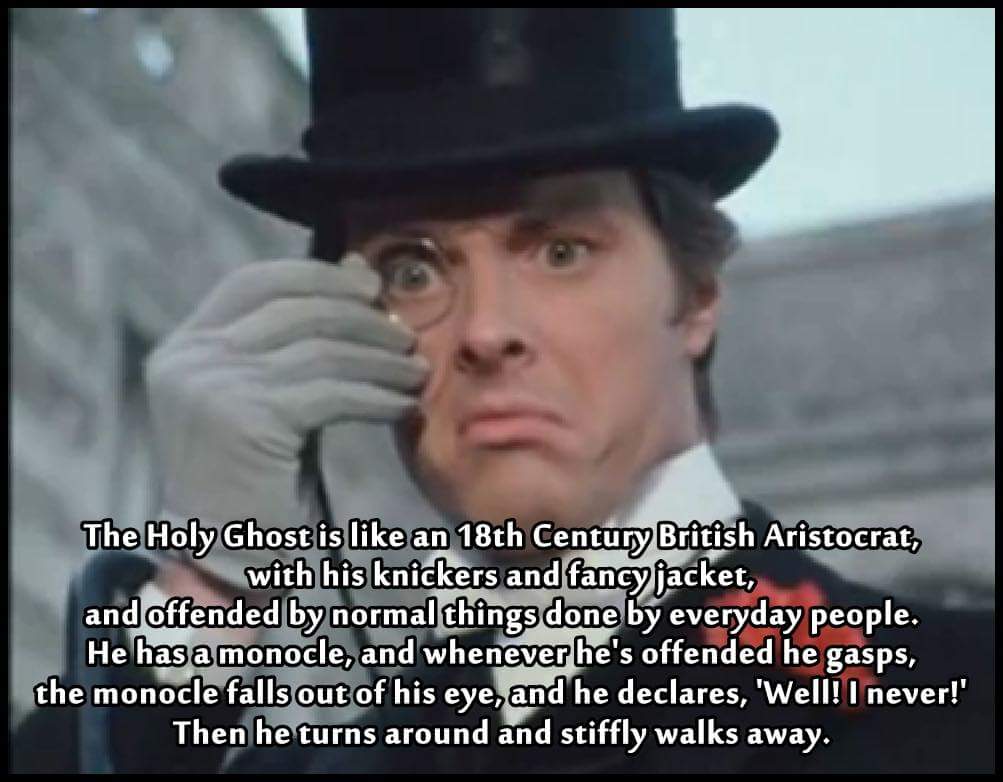
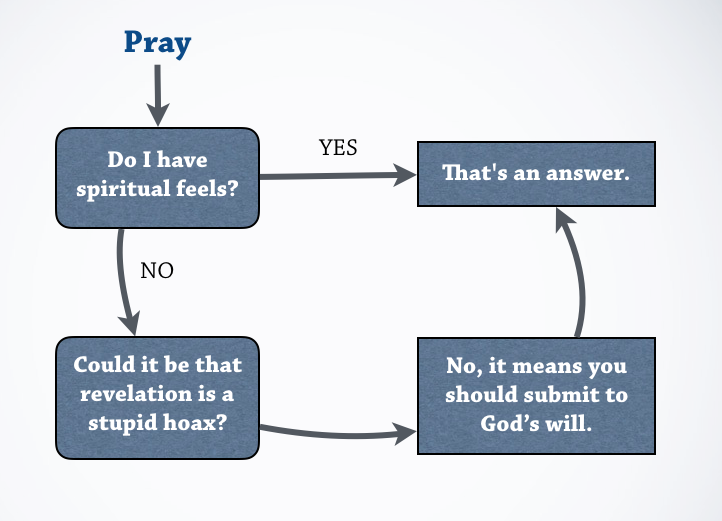
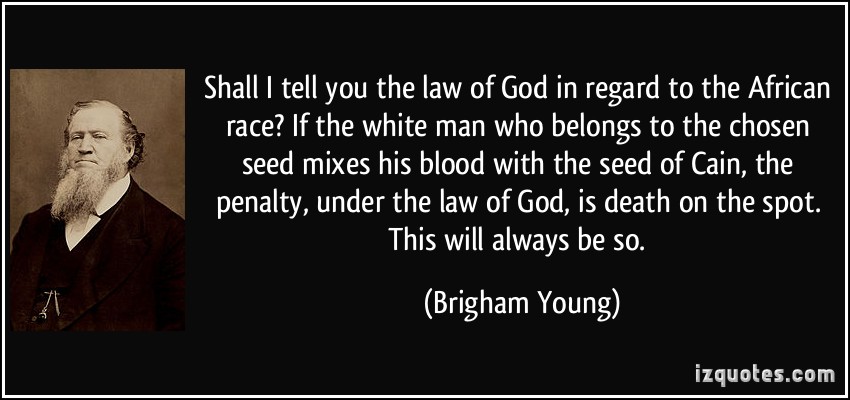
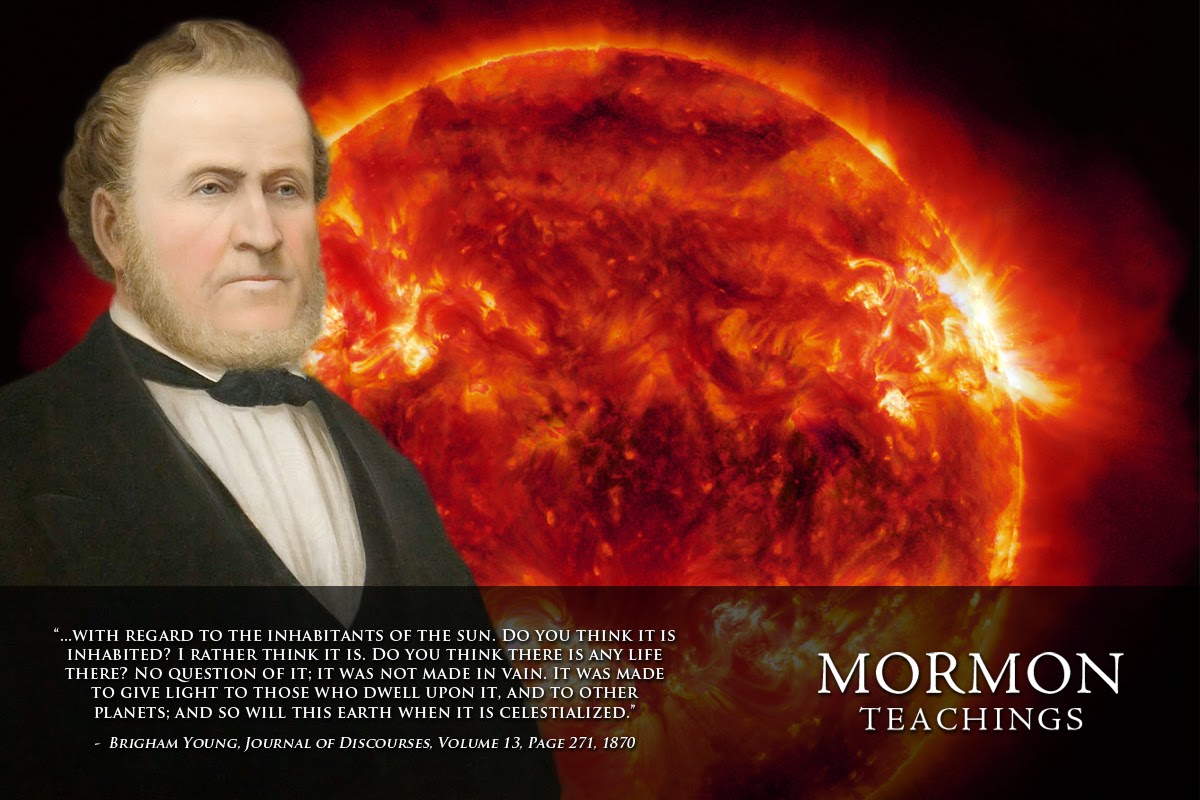




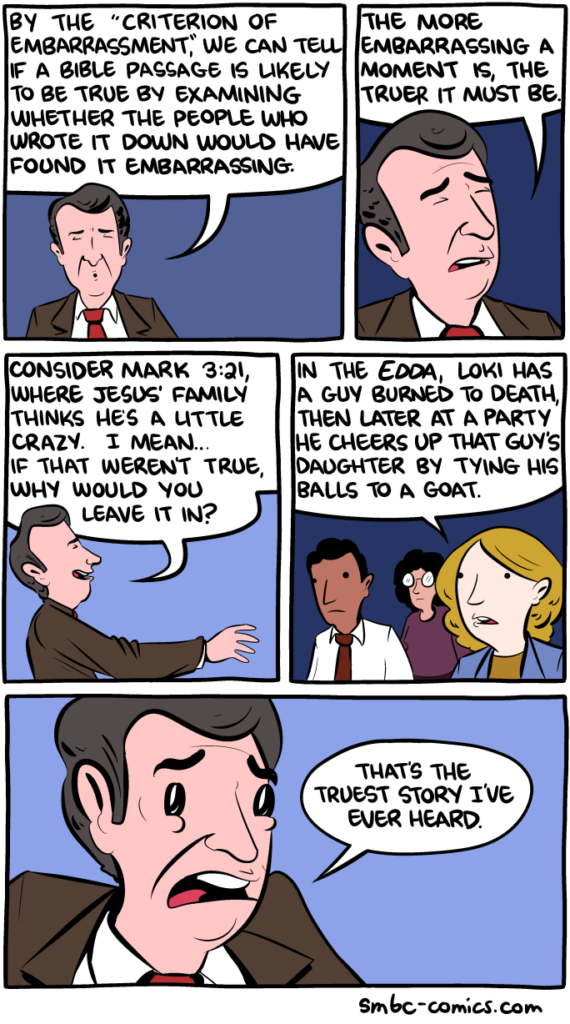
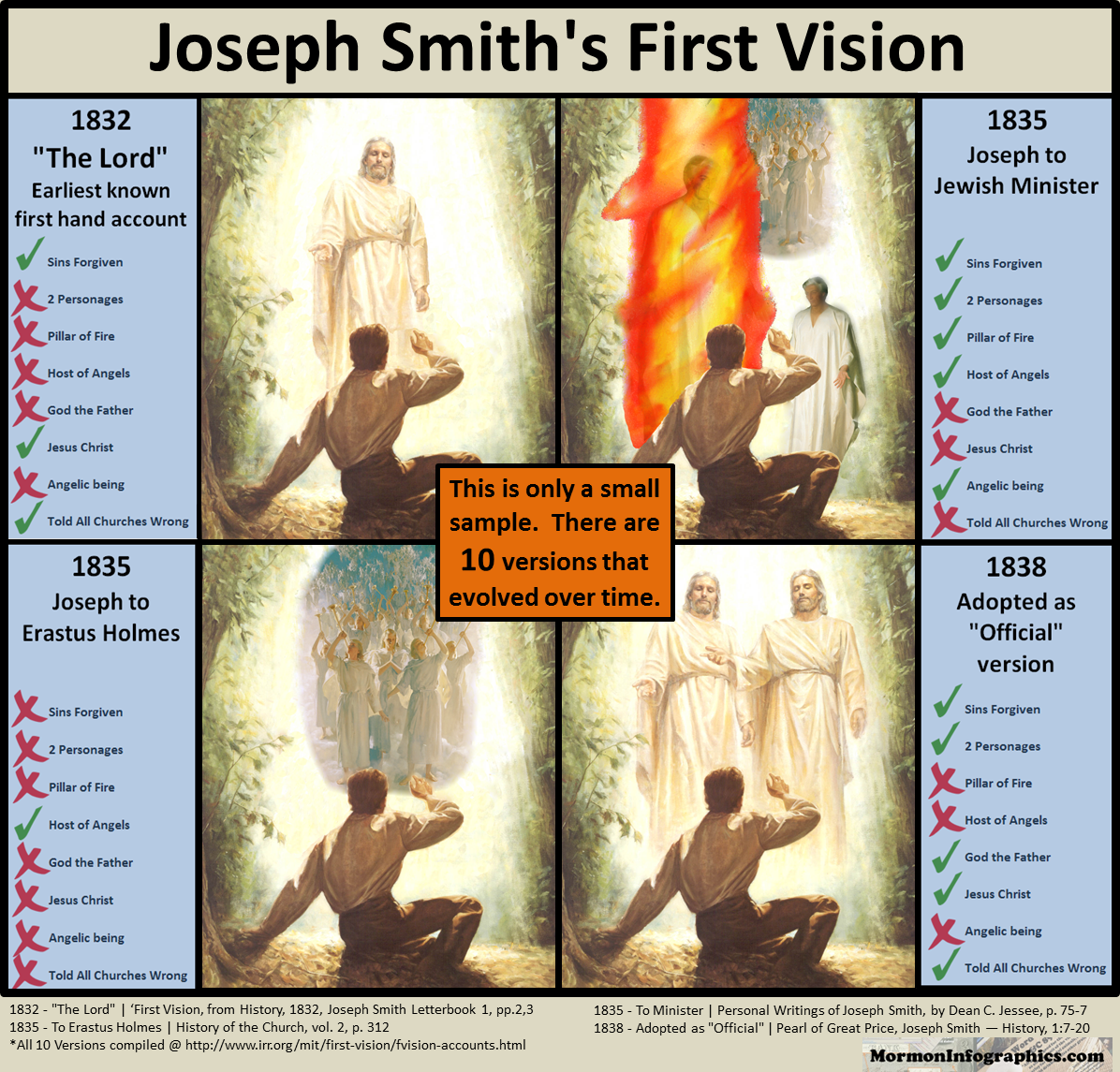
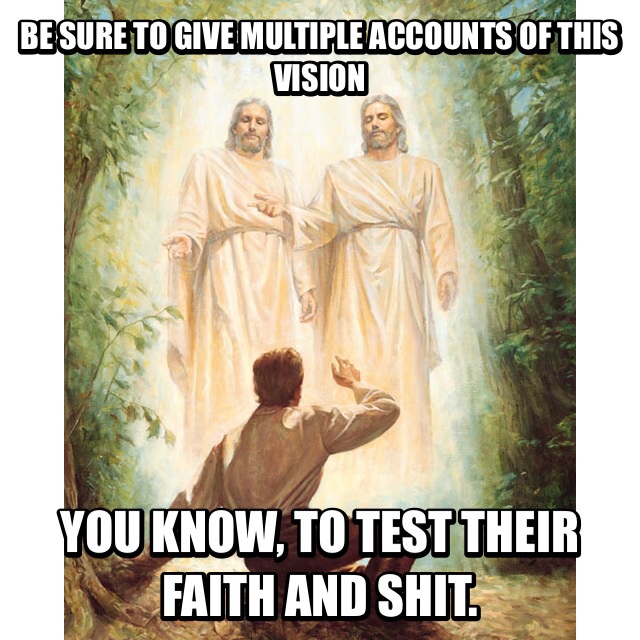
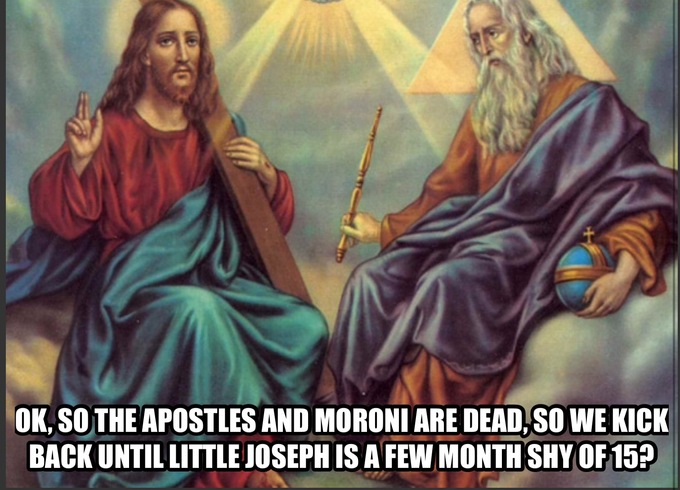
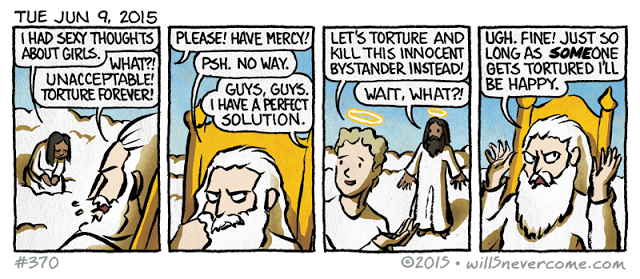
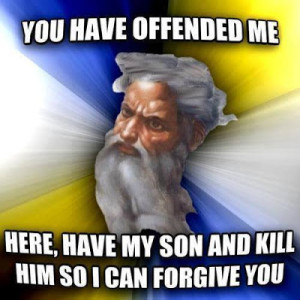

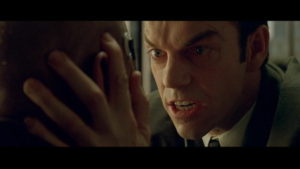
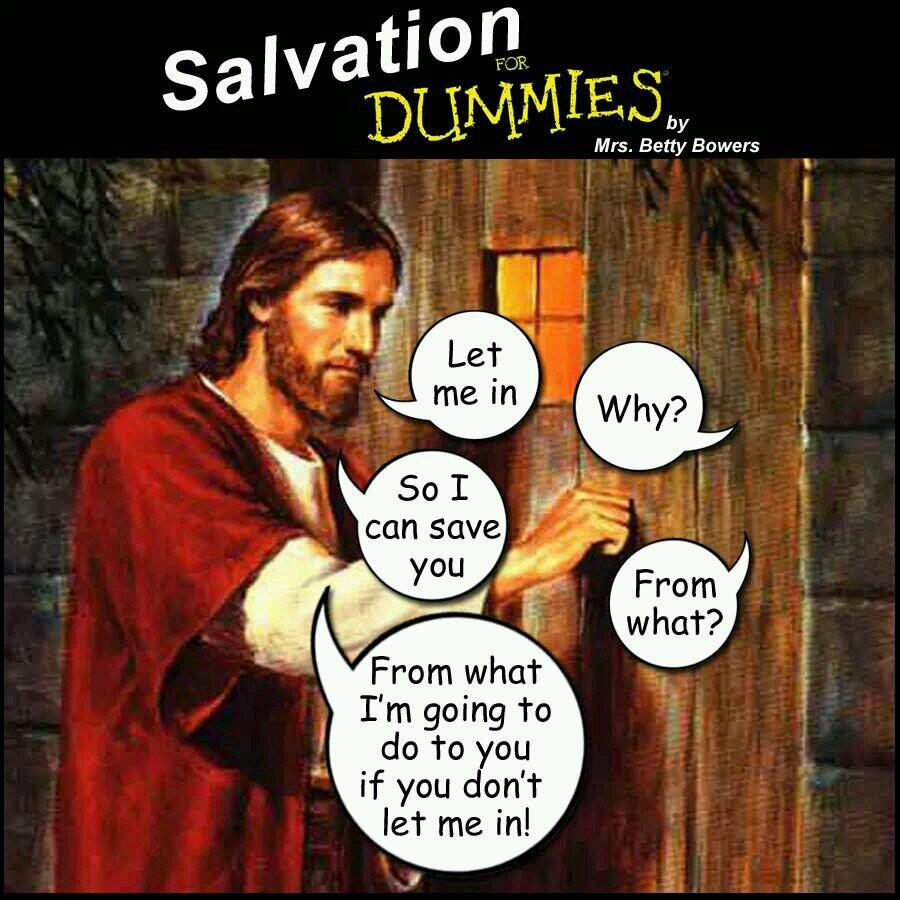
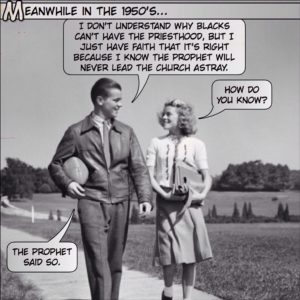

Recent Comments